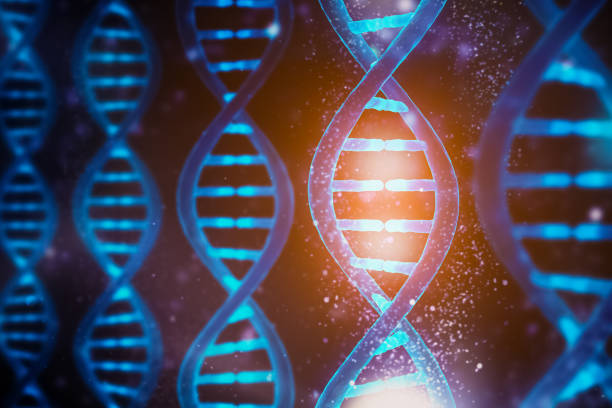Did you know that DNA, the molecule that carries the genetic instructions for life, is negatively charged? The negative charge of DNA is an important feature of this molecule, and it plays a crucial role in its interactions with other molecules and in the overall function of the cell. In this article, we will explore the reasons why DNA is negatively charged and how this charge affects its function.
Why is DNA Negatively Charged?

DNA is negatively charged because of the phosphate groups that make up part of its structure. The phosphate groups in DNA are negatively charged, and they contribute to the overall negative charge of the DNA molecule.
The negative charge of DNA is important for several reasons.
- First, it allows DNA to interact with positively charged ions and molecules, such as cations, which are essential for the stability and function of DNA.
- Second, the negative charge of DNA is also important for its interaction with proteins, such as enzymes, which play a key role in DNA metabolism. Many proteins that interact with DNA have positively charged amino acids, which are attracted to the negative charge of DNA. This allows the proteins to bind specifically to DNA and carry out a wide range of functions, including replication, transcription, and repair.
Overall, the negative charge of DNA is a key feature of this important molecule, and it plays a crucial role in its interactions with other molecules and in the overall function of the cell.
Reasons why DNA is negatively charged

There are several reasons why DNA is negatively charged:
- The phosphate groups in DNA are negatively charged: The phosphate groups in DNA carry a negative charge, and this contributes to the overall negative charge of the DNA molecule.
- DNA interacts with positively charged ions and molecules: The negative charge of DNA allows it to interact with positively charged ions and molecules, such as cations, which are essential for the stability and function of DNA.
- DNA interacts with proteins: Many proteins that interact with DNA have positively charged amino acids, which are attracted to the negative charge of DNA. This allows the proteins to bind specifically to DNA and carry out a wide range of functions, including replication, transcription, and repair.
- The negative charge of DNA is important for its structure: The negative charge of DNA helps to stabilize its double helix structure by attracting and binding to positive ions, such as cations, which can help to neutralize the negative charge.
Overall, the negative charge of DNA is an important feature of this molecule, and it plays a crucial role in its interactions with other molecules and in the overall function of the cell.
Also Read:
- DNA Ladder – Read Agarose Gel Electrophoresis Results
- Banana DNA Extraction & Functions of Reagents (Explained!)
- How is Mitochondrial DNA (mtDNA) Typing Used in Forensic Science?
Why is phosphate negatively charged in DNA
Benefits of DNA being Negatively Charged
There are several benefits of DNA being negatively charged:
- DNA can interact with positively charged ions and molecules: The negative charge of DNA allows it to interact with positively charged ions and molecules, such as cations, which are essential for the stability and function of DNA.
- DNA can interact with proteins: Many proteins that interact with DNA have positively charged amino acids, which are attracted to the negative charge of DNA. This allows the proteins to bind specifically to DNA and carry out a wide range of functions, including replication, transcription, and repair.
- The negative charge of DNA helps to stabilize its structure: The negative charge of DNA helps to stabilize its double helix structure by attracting and binding to positive ions, such as cations, which can help to neutralize the negative charge.
- The negative charge of DNA allows it to be efficiently transported within the cell: The negative charge of DNA allows it to be efficiently transported within the cell by proteins that have the ability to bind to DNA and move it to different locations within the cell.
Overall, the negative charge of DNA is an important feature of this molecule, and it plays a crucial role in its interactions with other molecules and in the overall function of the cell.
People Also Read: